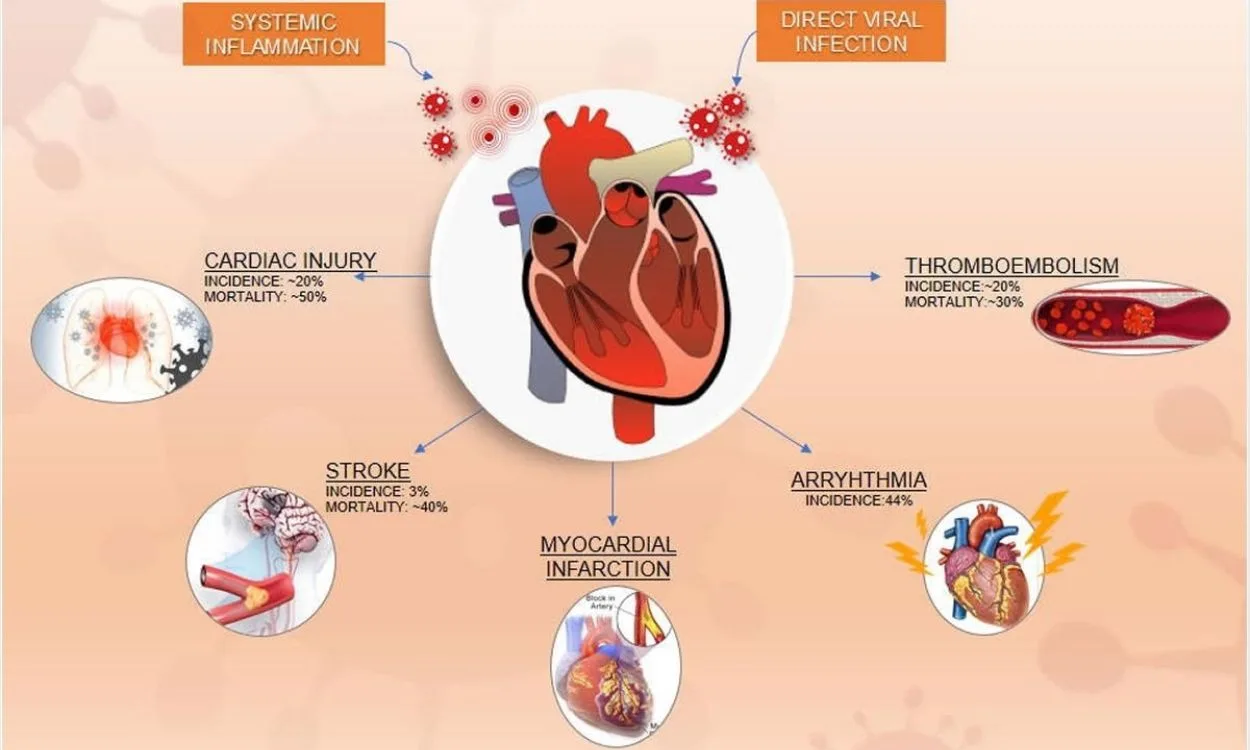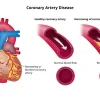What are the Different Types of Heart Disease?
Heart disease is a term that encompasses various conditions that affect the structure and function of the heart. It is a leading cause of death worldwide, including in India. Understanding the different types of heart disease is important for prevention, early detection, and effective management.
Here are the various types of heart disease:
- Coronary Artery Disease (CAD): This is the most common type of heart disease and occurs when the blood vessels that supply the heart muscle with oxygen and nutrients become narrowed or blocked. The main cause of CAD is the buildup of plaque in the arteries, known as atherosclerosis. CAD can lead to chest pain (angina), heart attacks, and heart failure.
- Heart failure: Also known as congestive heart failure, it is a condition where the heart is unable to pump enough blood to meet the body’s needs. Heart failure can develop gradually over time or occur suddenly. It is often caused by underlying conditions such as CAD, high blood pressure, or heart muscle damage.
- Arrhythmias: These are abnormal heart rhythms that can occur as a result of electrical abnormalities in the heart. Arrhythmias can range from harmless to life-threatening. Common types include atrial fibrillation (irregular and fast heartbeat), bradycardia (slow heartbeat), and ventricular fibrillation (dangerous irregular heartbeat).
- Valvular Heart Disease: This type of heart disease affects the valves of the heart. The valves are responsible for ensuring the proper flow of blood through the heart chambers. Valvular heart disease can involve valve stenosis (narrowing) or valve regurgitation (leaking). Common valve conditions include mitral valve prolapse, aortic stenosis, and mitral regurgitation.
- Congenital Heart Disease: This refers to heart abnormalities that are present at birth. It can involve structural defects in the heart or blood vessels. Congenital heart disease can range from simple conditions that cause no symptoms to complex defects that require immediate medical intervention. Examples include atrial septal defects and tetralogy of Fallot.
- Cardiomyopathy: This is a disease that affects the heart muscle, causing it to become enlarged, thickened, or rigid. Cardiomyopathy can lead to heart failure, arrhythmias, and other complications. There are different types of cardiomyopathy, including dilated cardiomyopathy, hypertrophic cardiomyopathy, and restrictive cardiomyopathy.
- Peripheral Artery Disease (PAD): PAD occurs when there is a narrowing or blockage of the blood vessels outside the heart, usually in the legs. It is commonly caused by atherosclerosis and can result in leg pain, numbness, and poor wound healing.
- Rheumatic Heart Disease: This is a complication of rheumatic fever, which is caused by an untreated streptococcal infection. Rheumatic heart disease affects the heart valves and can lead to valve damage, heart failure, and other complications.
It is important to note that the above list is not exhaustive, and there are other less common types of heart disease as well. It is crucial to seek medical advice if you experience any symptoms or have risk factors for heart disease. Early detection, lifestyle modifications, and appropriate medical interventions can help manage and prevent heart disease.
Now that you understand the different types of heart disease, it is essential to take charge of your heart health. Fitpaa, an AI-driven health and fitness platform, can help you achieve your health and fitness goals while prioritizing your heart health. With personalized plans, expert guidance, and advanced technology, Fitpaa can support you in managing heart disease risk factors and living a healthier life.
To experience the benefits of Fitpaa and take control of your heart health, download the Fitpaa app today. Let us embark on a journey towards a healthier heart and a fulfilling life. Remember, your well-being is our mission!
Download Fitpaa app now and start your journey towards a healthier heart and a fulfilling life.









